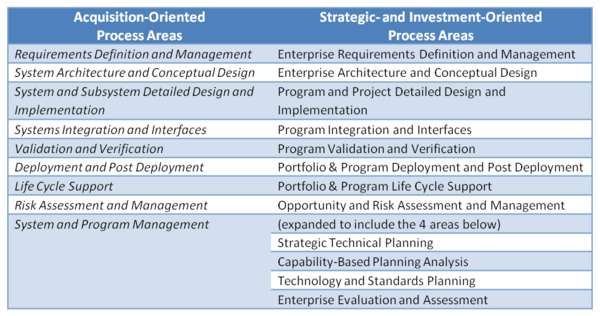Difference between revisions of "An Enterprise Systems Engineering Framework"
| Line 1: | Line 1: | ||
| − | <blockquote>Martin, J. N. 2010. An Enterprise Systems Engineering Framework. Paper presented at 20th Anniversary International Council on Systems Engineering (INCOSE) International Symposium, 12-15 July, 2010, Chicago, IL, USA. | + | <blockquote>Martin, J. N. 2010. "An Enterprise Systems Engineering Framework". Paper presented at 20th Anniversary International Council on Systems Engineering (INCOSE) International Symposium, 12-15 July, 2010, Chicago, IL, USA. |
</blockquote> | </blockquote> | ||
| Line 13: | Line 13: | ||
====Citations==== | ====Citations==== | ||
| − | Martin, J. N. 2006. An enterprise architecture process incorporating knowledge modeling methods. PhD dissertation, George Mason University. | + | Martin, J. N. 2006. "An enterprise architecture process incorporating knowledge modeling methods". PhD dissertation, George Mason University. |
===Enterprise Systems Enginereing Key Concepts=== | ===Enterprise Systems Enginereing Key Concepts=== | ||
| + | Annotation to be added for SEBoK 1.0. | ||
===Enterprise Systems Engineering Process Activities=== | ===Enterprise Systems Engineering Process Activities=== | ||
| + | Annotation to be added for SEBoK 1.0. | ||
===Related Business Activities=== | ===Related Business Activities=== | ||
| − | + | Annotation to be added for SEBoK 1.0. | |
[[Category:Primary Reference]] | [[Category:Primary Reference]] | ||
Revision as of 04:03, 14 September 2011
Martin, J. N. 2010. "An Enterprise Systems Engineering Framework". Paper presented at 20th Anniversary International Council on Systems Engineering (INCOSE) International Symposium, 12-15 July, 2010, Chicago, IL, USA.
Annotation
Traditional systems engineering (SE) is performed on a development project with only one or a few related systems being developed. Enterprise SE, on the other hand, must deal with deciding among many enterprise opportunities that the enterprise projects will work on. This entails several processes that are not provided for in traditional SE practice.
An Enterprise SE Framework (shown below on the right side of the table) was developed to characterize the full scope of SE at the enterprise level. This framework was used to evaluate several case studies as part of doctoral research in the application of SE in large organizations (Martin 2006). This evaluation focused on how they used knowledge modeling techniques identified in the research for development of an enterprise architectures.
Table 1. Extension of TSE to ESE Process Area (Source: (Martin 2010), Used with Permission)
Citations
Martin, J. N. 2006. "An enterprise architecture process incorporating knowledge modeling methods". PhD dissertation, George Mason University.
Enterprise Systems Enginereing Key Concepts
Annotation to be added for SEBoK 1.0.
Enterprise Systems Engineering Process Activities
Annotation to be added for SEBoK 1.0.
Related Business Activities
Annotation to be added for SEBoK 1.0.
